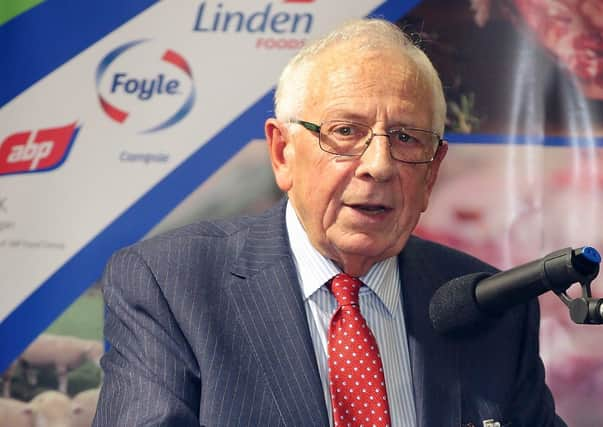Aid package won’t cut it for red meat


NIMEA chairman, Campbell Tweedie said: “The last two months have been some of the most difficult in living memory and Covid 19 has required a concentrated response from the meat industry to maintain the food supply and keep our workers safe.
“That has been the focus of our members, but it has come at a huge cost. In early April, carcase balance and social distancing costs were estimated at £200 per head, but because of panic buying of staples like mince and dice, reducing production was not an option. Factories have had to absorb some of these costs while some of the impact is reflected in lower farmgate prices, which is unsustainable given the narrow margins in meat processing and the existing pressure on farm incomes.”
Advertisement
Advertisement
Mr Tweedie added that the Private Storage Aid scheme is not particularly helpful.
“The scheme requires the entire hindquarter to be frozen, whereas the market issues that PSA is supposed to solve, relate almost exclusively to steak cuts. Under these circumstances, the level of support available will not come close to encouraging uptake of the scheme. Even if there is good uptake, there is still the question of how to ensure that this frozen product does not further undermine the market when it eventually comes back out of storage later in the year.
“Aside from PSA, the EU has effectively left it up to member states to support their own economies and NIMEA says that this has led to is a real problem with a level-playing field. So far, the only UK support for trading business is through government-backed loans on commercial terms.
“Meanwhile, in the Republic of Ireland a Wage Subsidy Scheme entitles eligible businesses across the whole economy, including food processing and ancillary industries, to significant support of at least €350 per week for each employee, or up 85% of the wage bill.”
Campbell Tweedie says that the contrast is alarming.
Advertisement
Advertisement
He further explained: “Northern Ireland business is expected to borrow to survive this crisis, while Irish competitors receive a direct weekly wage subsidy across all of their staff. The economic harm done by Covid 19 will remain on the balance sheets of Northern Ireland businesses while the Irish state is sharing the burden with Irish business, putting competitors there in a far stronger position to manage the recovery and cope with social distancing costs and the market disturbance.
“In Northern Ireland there has been lots of meetings, but we are receiving no meaningful support to respond to Covid 19.
“The level and nature of support directly available to Irish producers and processors, relative to NI counterparts, has been an ongoing issue. Irish processors have received capital grant schemes, while a range of productivity, animal welfare and tax incentive schemes have been available to Irish beef farmers, with no corresponding arrangements in place in Northern Ireland.”
Mr Tweedie added that last year’s €100m Brexit aid package to beef producers is a good example.
Advertisement
Advertisement
Mr Tweedie continued: “When processors or farmers seek government support we are told there is no money, but there is a recognition that agri-food is more important to the NI economy compared to the rest of the UK and the need for a level playing field with the south. We are very grateful for the support and commitment of the Agriculture Minister, but the economic recovery will be a major challenge for the entire Stormont Executive and our industry will need all relevant departments, agencies and the whole apparatus of government to be acting with a greater level of conviction and urgency to secure support to address the immediate and longer-term needs of businesses and farmers. Otherwise, the recovery here will be a lot slower and a lot longer than our neighbours and international competitors.
NIMEA has also highlighted that access to new markets will also be critical in finding a way out of the current crisis.
Mr Tweedie said: “Certain countries are suffering from protein shortages and supply chain disruptions as a result of ASF in China and the consequences of CV19 in the USA. In the absence of a functioning UK foodservice sector, access to the USA and Chinese markets would help re-balance the market and aid recovery.”
Once again, Mr Tweedie contrasts the Northern Ireland situation with the Republic of Ireland, where market access to the USA was secured in 2015 and to China in 2018.
Advertisement
Advertisement
He commented: “The Irish now have a foothold in these markets and again that gives their industry a serious advantage at times like the present. Progress on Chinese access is currently the greatest frustration. Even though technical approval from China was announced in October 2019, no exports have went to China because officials cannot agree on the Notes for Guidance (NFG) that accompany the health certificate in a way that would allow for any volume of meat to be exported to China.”
He concluded: “This now equates to over six months during which our nearest competitors in Ireland have access to this market giving them a significant commercial advantage and while these delays are costly to industry, they could be resolved at minimal cost to government.”